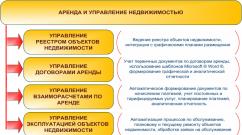How to improve spoken English? Where to start? How to improve your English How to improve your spoken English.
All the books, websites and apps in the world can't teach you to speak English fluently.
The most effective and quick way to achieve this is to immerse yourself in a language environment with native speakers - in courses at Language schools, plunging headlong into the English-speaking environment.
Sometimes you don't have this option, but you can still improve your spoken language. We'll explain how to do this.
1. Think in English
If you think in your native language and then try to speak English, you will always have to translate from one language to another. Translating is not easy! Even people who speak two or more languages have difficulty switching from one language to another.
The solution is to think in language.
This can be done anywhere and anytime. Try to think in English when thinking about your day, or, for example, when deciding what pizza to order. Try using a dictionary to look up an unfamiliar word. Over time, you will notice that thinking in English makes it easier to speak it.
2. Talk to yourself
Whenever you are alone, you can practice with your loved one - yourself.
If you are already trying to think in English, try saying your thoughts out loud. Read aloud. Practice is still practice, and even if there is no one to correct your mistakes, simply “performing” out loud will help you feel more comfortable.
3. Use a mirror
Whenever you have a few free minutes in front of the mirror, talk in English to your reflection. You can choose a topic in advance, set aside time for a few minutes and just talk.
The purpose of this exercise is to monitor your face and body while speaking. This will also give a feeling of conversation, as you can imagine that you are discussing something with the interlocutor.
Talk for 2 or 3 minutes. Don't stop if you get stuck on a word you don't know, try expressing your thought differently. You can always find this word in the dictionary after finishing these 2-3 minutes in front of the mirror. This will certainly help you find out which words or sentences you are having trouble with.
4. Focus on fluency, not grammar.
Speaking in English, how often do you stop?
The more you stop, the less confident you feel, and the less comfortable you become. Try the mirror exercise above, but challenge yourself to speak without stopping or taking long pauses between words.
The sentences may not be grammatically perfect, but if you focus on speaking fluently rather than correctly, you will still be understood and your speech will sound better. You can correct grammatical errors and words as you get to know them better.
5. Try tongue twisters
Tongue twisters are phrases that are difficult to say quickly. Try saying them in English several times. It's not easy.
This type of play on words helps improve pronunciation.
6. Listen and repeat
Do you watch TV shows and videos? Apply them to improve your language proficiency. Stop at a short part of the show and repeat it line by line. Try to match the tone, speed, and even accent (if you can). It doesn't matter if you miss a few words, the important thing is to keep talking. Try to sound like the native speakers on the show.
7. Try to follow the accents
English uses stressed syllables. This means you need to emphasize certain syllables (sounds) to give different meanings to words.
Listen to where native speakers emphasize when they speak. Try to do the same again.
This will not only help you speak well, but may even reduce misunderstandings. Sometimes placing stress on the wrong syllable changes the word completely. The word ADdress, for example, is not the same as adDRESS. ADDress refers to the physical location where someone lives, and ADDRESS means to address something to a group of people.
Learn to hear the difference!
8. Sing songs
Songs in English will help you speak more fluently.
Once you can sing along with your chosen artists, try testing your skills on something more challenging, like rapping! There, the lyrics of the song are often spoken as ordinary sentences. However, the rapper uses a stronger rhythm and higher speed. Some of the words may not make sense, but if you can keep up with the rapper, you'll be on your way to speaking fluently!
9. Learn collocations with new words
Speak more simply by learning different forms of a new word. For example, if you just learned the word get, also learn phrases with get.
It is important to know the correct way to use a word in any sentence. This knowledge will help during the conversation.
10. Learn phrases, not just individual words
You may be using the correct grammar and vocabulary, but it's still not what a native speaker would say.
Phrases and expressions can be helpful to sound more natural.
11. Identify your most common expressions.
Take some time to notice how you speak your native language.
What words and phrases are used most often?
Learn how to say your most frequently used phrases and words in English. Knowing them in English will help you speak them as well as in your native language.
12. Prepare for specific situations
Are you learning English for a specific reason? For example, to work in an English-speaking company? In this case, practice English, which will help you in the interview. Are you learning a language so you can make friends in other countries? Then a different type of language will be needed.
Before you go to a place where you will need to speak English, you can practice what you may have to say. For example, when preparing to go to a restaurant, answer questions the waiter might ask. Try talking about food and menus.
You will feel more confident if you are prepared!
13. Relax!
You yourself can become your own best helper or enemy! It's difficult, but still, try not to worry about how you feel when you speak. Just relax!
If you get stuck or confused, just breathe and start again. Speak more slowly if necessary. Pause and think about your next sentence.
19.08.2014
We all know how young children learn to speak - before they utter their first word, they listen to their parents talk, gradually getting used to speech. It is more difficult for adults to master a foreign language, but it is quite possible. A good way to develop your English speaking skills is through listening.
In order to master listening skills and become fluent in English, you should listen to a lot of audio and video tutorials in English, such as dialogues, thematic texts and audio stories, and listen to them again from time to time.
It is advisable to have English subtitles for audio and video materials. The most effective listening is achieved when you read the subtitles and then repeat after the speaker, trying to imitate his pace and intonation. This way you can study any topic and at the same time practice English pronunciation.
5 Practical Tips to Improve Your Listening and Speaking Skills
Here are some tips that I'm happy to share with you. They will certainly help you improve your speaking and listening skills.
1.Listen to each sentence several times.
While listening, you need to see the text itself and read each sentence.
2.Make sure you understand every sentence in terms of pronunciation, vocabulary and grammar.
3. Without looking at the text, try to repeat each phrase(say it out loud) exactly as you heard it.
When you repeat a sentence as closely as possible to the test, you consequently remember its content.
4. Listen to specific text in short paragraphs, conditionally dividing it into parts.
For example, after reading one paragraph, immediately compare it with the subtitles.
5. Listen to the entire text several times and try to tell the content of the entire conversation or text.
You can write down key words and phrases or main ideas as an outline of a particular dialogue or text to make it easier to retell later.
It is important to compare what you said with the text.
It may be a good idea to record your own speech and compare it with the original audio/video recording. Yes, it may seem funny, but believe me, it's worth it.
So, let's summarize
- There are many ready-made thematic dialogues in English, thematic texts (informative texts and plot stories), grammar materials (in the form of dialogues and texts), and sentences with complex vocabulary on various topics.
- You can also practice listening comprehension of English using fixed phrases and English idioms.
- To test yourself, use video materials from subtitles. Reading books, using audio and video materials provide additional practice and speed up the development of the English language.
Now you know how to improve your English speaking skills through listening, all that remains for you to do is to start implementing the above tips as soon as possible.
I'm sure you will succeed! Of course, it may not be the first time, but don’t forget – practice and practice again!
It doesn't matter how fast you go, as long as you don't stop.
Confucius
What methods do you use to develop spoken language? I look forward to your answers in the comments!
In my blog there are tips for those who want to improve their knowledge of English..
I want to talk about how to build a system for self-learning English (or any other) language, using modern and not so modern technologies. A system where all elements are connected and support each other.
But before deciding how to study, let's discuss the reasons why language learning is endlessly put off.
Reason 1. Lack of resources
Many people believe that the teacher or courses are an integral part of learning. But this is precisely what requires time and money, which are always in short supply. As a result, English is transported to better times that will never come. In my opinion, the number of opportunities for initial language learning is now so great that you can start right today, without leaving home.
Hundreds of applications, sites for learning languages, electronic translators, films, lectures and videos in English - this is a huge arsenal that is completely accessible to you. You will need a teacher later, when moving to more complex levels.
Reason 2. Lack of purpose
Another reason for postponing study until later is the lack of a learning goal and a way to maintain the achieved level. Many people believe that if you learn a language without the prospect of constant use, then it is useless.
I think that there is a very simple way to maintain the achieved level of English for as long as you like - reading. If you constantly read, you only lose your speaking skills, but at the same time you understand the structure of the language better and increase your vocabulary. An active reader regains speaking skills very quickly.
Reading English has never been as easy as it is now, and this is the first component of the plan that I want to talk about.
Reading from Kindle (or LinguaLeo plugin)
With this magical machine for 4,000 rubles with delivery to Russia in two weeks, you can immediately read entry-level books and articles (articles can be sent to Kindle from a computer). Any word can be translated simply by tapping on it, provided you have purchased the correct Kindle Paperwhite model with a touch screen. When you buy, choose the version with advertising - Amazon's is very cool and will delight you on winter evenings. The Russian-language dictionary is installed on Kindle as easily as loading any book. I use the NBARS dictionary, which I found in a couple of minutes on the Internet. You just need to specify it in the device settings as the default dictionary.
Kindle is not the only solution; many other e-readers have similar functionality.
If you don't want to buy a Kindle, you can easily get by with an even simpler tool. The LinguaLeo service provides its users with a useful plugin for the Chrome browser, which translates words in English texts by double clicking on them. To read any articles on the Internet, a regular computer will be enough for you.
Collecting new words
All words and even entire phrases that were new to you in the book can be marked in Kindle. After finishing the book, you will have a ready-made dictionary to study. The first books provide a huge flow of unfamiliar words, but with each subsequent book their number decreases and comes to 70-80 per publication. The LinguaLeo plugin also carefully saves all the words that you translated, although it does it itself and without much analysis.
By the way, I cannot call the LinguaLeo service itself and other similar systems effective. The learning mechanics they offer are too playful and don't provide much of a challenge. I don't believe in easy learning.
Spaced word learning
What to do with the identified words? Learn! But just without writing them down in a notebook. There are many spaced learning systems where you load your words and run them around in circles. Over time, the system itself removes everything that you have learned and leaves what you do not yet know. The most popular system is Anki.
People all over the world want to improve their English language skills, and there can be many reasons for this: business, pleasure, moving to an English-speaking country. During the learning process, you may often feel like you are making no progress, but this is not difficult to overcome. With a little diligence, you will soon speak almost like a native speaker.
Steps
Part 1
expansion of knowledge-
Label items around the house. Take a pack of stickers and start labeling items with English names. Even if you already know something, do it anyway. Simply thinking about these subjects in English "first" and then in your native language will speed up your learning process. In addition, it is not difficult at all, and you will feel progress very soon.
- Try to get to the point where you can think about subjects in English without hesitation. Sit on your bed and mentally go through all the labels in the house. If you can’t remember something, get up and go look. Once you reach this level, label the rest! Make the words more complex: from "window" to "window pane", from "couch" to "cushion", from "shirt" ( "T-shirt") to "cotton blouse" ("cotton blouse"). There is always a next level in English.
-
Write it down in your notebook. In everyday life, you probably come across English words that you don’t fully understand. Next time, pull out your notebook or notepad and write down. When you get home, check the word you don’t understand in the dictionary. Instead of cursing: “Damn, how was that word on the menu?”, you simply open the desired page and remember the new word.
- If a notebook seems old-fashioned to you, use a smartphone. Start taking notes (or whatever app you want to use) for new English words. From time to time, go back to the words you wrote down and test yourself.
-
Surround yourself with English speaking people. If any of your friends speak English well, spend more time with them! Invite them to dinner and devote yourself to English for a few hours. Find a tutor and study individually. Take part in a language exchange program where you will be taught your language and you will be taught English. Get involved as fully as possible!
- Essentially, it all comes down to the fact that in order to achieve fuller language immersion, you should avoid using your native language whenever possible. Of course, when you come home, you want to relax on the couch and watch a movie in your native language, chat in it with friends, etc.. Don't do this! If you really want to improve your English, make time for the language every evening, at least an hour. Watch TV in English, listen to the radio in English, let everything be in English if possible.
-
Read children's magazines and books. They are engaging, usually contain many short articles or simple storylines, focusing on various topics (science, literature, self-development). But more importantly, they are well illustrated. With the help of pictures you will understand the meaning of many words without resorting to a dictionary. You will be able to read faster and the process will be more enjoyable!
- As for books, after the first acquaintance with the characters and getting used to the vocabulary used by the author, reading will become easier, you will move forward faster, memorizing new words and phrases. Try Nancy Drew, Animorphs, Sweet Valley Twins or other children's book series, they are available at most libraries.
- If your level is above this, read "all". You can choose something from old or new literature, choose something with a lot of dialogue, it will be easier to read.
- As for books, after the first acquaintance with the characters and getting used to the vocabulary used by the author, reading will become easier, you will move forward faster, memorizing new words and phrases. Try Nancy Drew, Animorphs, Sweet Valley Twins or other children's book series, they are available at most libraries.
-
Determine how you learn. Each of us has our own learning style. Some learn with their hands, some with their eyes or ears, some with everything together. Maybe your friend, having heard the poems in English, can repeat them, but you need to see the lines on paper to understand what they are talking about. By identifying how you study, you can tailor your study habits to suit your abilities.
- Even better, you can stop wasting time on methods that don't work for you. If the teacher talks and talks and you can't remember anything, you can start taking notes. If you read a book and don't remember anything, try reading it out loud. Any obstacles can be overcome somehow.
-
Learn word roots, prefixes and suffixes. It won't hurt even native speakers! After all, there are so many words in English (about 750,000, according to some methods of counting - much more than in languages with which it would make sense to compare), by learning the roots of words, you can make significant progress. Once you see a word and know the root, you will recognize it immediately and can do without a dictionary.
- Let's say you come across the sentence "It was an acephalous society." What kind of society was it!? Think about it for a second. You know that the prefix "a-" means "without": immoral, asexual, asymmetrical. You know that "cephal" means "head": encephalitis, encephalogram. And you know that the suffix "-ous" means an adjective: ambitious, delicious, glamorous. And you understand the meaning of this sentence. "It was a society without a head, without a leader." Who needs a dictionary? Certainly not for you.
-
Read newspapers in English. Some newspapers use more complex language, others simpler, so choose something that suits you. Remember, you can start with just the headlines and move on to the articles themselves when you gain a little confidence. You can read at your own pace, choosing interesting articles. Well, at least read the comics!
- If one of your friends is also studying, arrange a discussion. Let everyone bring an article they like, then discuss everything - in English, of course. You can study and talk about world events at the same time!
-
Don't be afraid of mistakes. If you didn’t have teachers who endlessly repeated this to you, then you were probably taught by some robots. Making mistakes is extremely important. If you don’t use new, more complex structures and don’t make mistakes, you won’t learn what’s right and what’s wrong, and you won’t be able to really grasp the material you’re studying. I don’t want to make mistakes, but I can’t do without it.
- This is why most people stop progressing and get stuck at one level. People are afraid to speak with native speakers, afraid to expand the boundaries of the familiar, afraid to grow. Do you think the greats let mistakes get them down and stopped? No!
Part 2
Use of technology-
Watch the DVD in English. TV and movies are also good, but it's better to have something that you can watch over and over again. You can really learn the material by constantly discovering something new, then your brain will relax and you can have fun. Ask your friends if they can lend you some TV series in English!
- Thanks to satellite television, British, American and Australian programs and films are available all over the world. Try recording! First try watching with subtitles, this will help you gain confidence in your abilities, then watch without. The higher your level, the more enjoyable this “study” will be.
-
Listen to the radio. An excellent source of spoken English is the BBC World Service, they even offer programs for learners. While doing housework, turn on the radio in the background. Even just hearing English spoken all the time, you learn passively. It is not at all necessary to sit down at the table and stare at the radio with a serious look - just listen!
- Does radio seem old-fashioned to you? No, this explanation won’t work - there is also Internet radio, you know? You can find programs on almost any topic, you can listen to classics like NPR and "This American Life."
-
Use the Internet. Listen to radio online, watch TV videos, read articles and even play educational games. You can also communicate with people! In addition, there are many pages dedicated to teaching English as a foreign language. Real people, of course, are better, but the Internet can also help you a lot.
- Both the BBC and Wikipedia have versions specifically designed for English as a second language learners. In addition, dozens of other sites offer work materials, articles, assignments, and stories for all language levels.
-
Use "correction" sites. Unless you're in a classroom and don't have a native speaker, improving your writing can seem quite challenging. How do you know if you write correctly? Just! Use sites that will correct you. They are often free. Start with sites like Italki and Lang-8. Again, no excuses!
- It's easy to forget about writing skills. But by developing your writing skills whenever possible, you can significantly speed up your progress. Write emails in English, write yourself reminders in English, blog in English. Even if you can't correct mistakes, just make it a habit.
-
Listen to a song a day. Not only is it fun, but you can “learn” new words and master their pronunciation. And new music! Choose one song every day and study it well and learn it. Choose a genre you like and songs that are not too fast - it’s better not to touch hard rap at this stage! The choice can be made in favor of the Beatles, Elvis or even musical theater.
- This can replace listening to the radio. Turn on the songs you learned and sing along! Who knows, maybe next weekend you'll go to a karaoke bar.
-
Buy an educational CD. Rosetta Stone may cost a lot, but it's worth it. Some even offer access to a native speaker! There are also Pimsleur and Michel Thomas. They all advocate different ways of learning - which one is best for you?
- Ask around, maybe someone you know already has these discs. Why pay twice? Something can probably be found on the Internet. Just be creative.
Part 3
Make an Extra Effort-
Practice speaking English every chance you get. In fact. Just take advantage of every little opportunity. This is easier if you live in an English-speaking country, but if not, you can speak with visitors. Don't be shy, don't worry about mistakes - just try it! Simply saying a phrase like “A cup of coffee to go, please,” can set you up for a real conversation!
- Create opportunities yourself! If you think an English-speaking tourist wants to take a photo, offer to help. If you go to a restaurant and they have an English menu, ask. It's little things like this that help you master a language.
-
Listen to your internal clock. Not only do we all have our own learning styles, but we also have “optimal times” for learning. Maybe studying in the morning is good, but in your mind you are still brushing your teeth and the lesson is of no use. Pay attention to what time you are most receptive to new material - try to study at these hours.
- Most people are especially susceptible in the late morning and late evening, although this is not necessarily the case for everyone. If possible, schedule your English lessons during your most productive hours.
-
Learn IPA. It stands for International Phonetic Alphabet. Yes, it may seem difficult, but it will definitely be useful to you. You can look up the word in “any” dictionary and know how to pronounce it. You will see the difference between British, American and Australian English. Plus, you can look at your own pronunciation and see which vowels you "really" pronounce. It's exciting!
- ɪts ˈlaɪk ə ˈsiːkrət koʊd! (It's like a secret code!) Pass notes to friends! Remember, every accent is a little different. If you encounter a strange pronunciation, note that it is general American, RP or something else.
- ˈsɪriəsli, ˈɪts ˈɑːsəm.
- ɪts ˈlaɪk ə ˈsiːkrət koʊd! (It's like a secret code!) Pass notes to friends! Remember, every accent is a little different. If you encounter a strange pronunciation, note that it is general American, RP or something else.
-
Record yourself. You can probably imagine how it should sound, but how does it actually work? Probably a little different. Make a recording! You can listen to it and pay attention to its advantages and disadvantages. At first, listening to your own voice is a little difficult (it can be confusing), but it’s okay, it will pass. And this is the best way to evaluate your progress!
- Take time to study pronunciation patterns. English is a mixture of different languages, so there is no one simple and clear rule, but there are patterns. In verbs of two syllables, the emphasis is on the second ( pro ject), and in adjectives - the first ( hap py). In general, the third syllable from the end is stressed (although this is not always the case): phot og rapher, con tin Continuous na tional, et ce tera. Does your speech reflect this?
-
Vary your lessons. If you take language classes, try adding another way of learning. Group? Try private lessons. Oral class? Try writing. Are you worried about your pronunciation? Try special classes to eliminate your accent. Practicing different skills in different environments will help you learn faster.
- If that's not an option, get creative. Start a study group or meet with a friend for one-on-one study sessions and conversations. Find a penpal or Skype friend. In addition to lessons, there are other (often paid) ways to improve your English.
Apply your heart to learning and your ears to wise words.
(parable of King Solomon)
Many people learning English often ask questions: “ How to improve your English?”, “How to learn English effectively?”, “How not to lose the knowledge gained through hard work and maintain your level?”. In this article I will give useful tips for learning English, which will tell you how to improve your language level much faster and effectively maintain it in the future.
Remember that you won’t be able to improve your English without making efforts - you will definitely need strong motivation, time And patience. Of course, not everyone finds learning English easy. There can be many reasons for this: lack of time due to being busy at work, incorrect prioritization, systematic fatigue... But! We are adults and deep down we understand very well that in most cases it all comes down to one thing - lack of desire and laziness. I wish you that the tips for learning English in this article will be a good help on the path to free communication.
First you need to motivate yourself. If you don’t have a clear goal, if you don’t understand why you need it, then the effectiveness of your study will be low. Therefore, I suggest starting with making a list all situations where English would be useful to you. For example, if you have a small child, then your good knowledge of the language will help you save on a tutor in the future. If you are running a business, then you can avoid embarrassment and awkward situations when your colleagues speak to you in English. Finally, when traveling, you will be able to speak English on your own, without outside help. Probably, many can remember situations when, being abroad, they lacked knowledge of the language in various situations: customs, shopping, local orientation, etc. Your study goals, of course, depend on your lifestyle and desires. After all, everyone is looking for what is really important to them.
The next step is to consider and take action. For example, you can learn a language on your own, sign up for courses, or study individually with a teacher. These can be either traditional classes in the classroom or classes via Skype, the popularity of which is growing every year. Read about the advantages and disadvantages of classes via Skype in my article. From work experience, I can say that very few people can learn a language from scratch on their own. Therefore, I advise you to go through at least the initial level with a teacher. Then, when you already have a certain vocabulary and basic knowledge of grammar and phonetics, you can continue studying on your own. Important!!! Whatever method you choose, take your dictionary wherever you go systematically write down new words, interesting phrases, proverbs. Constantly return to the material you have learned and refresh your memory.
- In order to be understood, it is not enough to simply learn grammatical rules and words. You need to be able to pronounce them correctly. Pronunciation is the most important part of any language. Take it seriously, otherwise incidents cannot be avoided. Study the book "English Pronunciation in Use" and your speech will be clear and understandable to everyone. And the announcer also talks about how important it is to work on pronunciation (with subtitles). But lesson, dedicated to the sounds of the English language.
- When working with an electronic dictionary, check the pronunciation of a new word by clicking on the “Listen to pronunciation” button. And repeat it several times in combination with other learned words.
- Install the menu on your mobile phone and programs on your computer in English - you will simply have to write down incomprehensible words, which you will learn very quickly, because you will always return to them when necessary.
- For those who know the language better than you, write SMS and e-mail in English - additional practice in writing sentences for you. And you can count on your friends to correct mistakes.

- Of course, to compose a simple message, you need to have basic knowledge of sentence construction. In English, adhere to the following word order: subject + predicate (i.e. who/what + action) + object + circumstance (this is briefly). The "" section will help you master the basics of English grammar - you can easily speak and write in whole sentences. It will only be a matter of vocabulary - of saturating sentences with new words.
- Now about vocabulary.
 I consider one of the most effective means (flash from English - flash, moment, flash card [‘flæʃ’kɑ:d] a card with text and a picture. Try to write a new word in made-up sentences, say it in a dialogue with someone.
I consider one of the most effective means (flash from English - flash, moment, flash card [‘flæʃ’kɑ:d] a card with text and a picture. Try to write a new word in made-up sentences, say it in a dialogue with someone. - Learn one proverb/phrase/idiom per day.
- One of my favorite sites is free video lessons in English. Suitable for a student of any level - the explanations from native speakers are extremely simple, presented with humor and not tiresome.
- Install the English Trainer program, write down your favorite phrases and start using them. Spend a few minutes a day on it.
- Learn English with your child - watch children's English-language channels, programs - now everything is available online or on TV. And, of course, try to keep a dictionary and discuss with your child what you saw and heard.
- Keep a travel diary in English - this is possible for any level (if possible, then work through the recorded material with a teacher)!
- Read and translate labels on food products - on juice boxes, cookies, bottles, etc. Make up your own diet in English, your loved ones, an elderly person, an athlete, an Englishman, a Chinese... - great vocabulary practice!
- Listen and do tasks for them.
- Listen to audiobooks in English.
- For students at the Pre-Intermediate level and above, Ilya Frank’s reading method will be interesting and educational, promoting passive language acquisition. This method involves an adapted passage - a text interspersed with a literal Russian translation and a small lexical and grammatical commentary. Then follows the same text, but unadapted, without prompts.
- Find out what the British Council is. They sometimes recruit students to participate in pilot programs for free, some of which last several months! Classes are taught by highly qualified specialists. For Ukraine - http://www.britishcouncil.org/uk/ukraine.htm Perhaps you will be the lucky one!
- Try to THINK in English (for starters, at least 2-3 times a day, 2-3 sentences). Further - more.
- Aerobatics are dreams in English! I sincerely wish you to see them more often :)
- Analyze the tips from this video:
If every day you do at least something from the list I have proposed and analyze these tips for learning English, choosing the most suitable ones for you personally, then after 10-20 lessons you will proudly notice your own progress, turning over the learned phrases, dialogues, words and grammatical structures. You will understand for yourself how to improve your English, what steps to take and in what direction to move. A person is designed in such a way that he constantly needs to see the result of his work to maintain motivation and enthusiasm. This applies not only to learning English, but also to any other activity. Therefore, mark EVERY step you take, even if it is unsuccessful - you will see what you need to work on more. Remember, this is your success, your work, your knowledge, your time devoted to the language! Do everything with soul and understanding, get inspired by the idea of learning a language - success will come much faster! And remember the wisdom of King Solomon's parable













